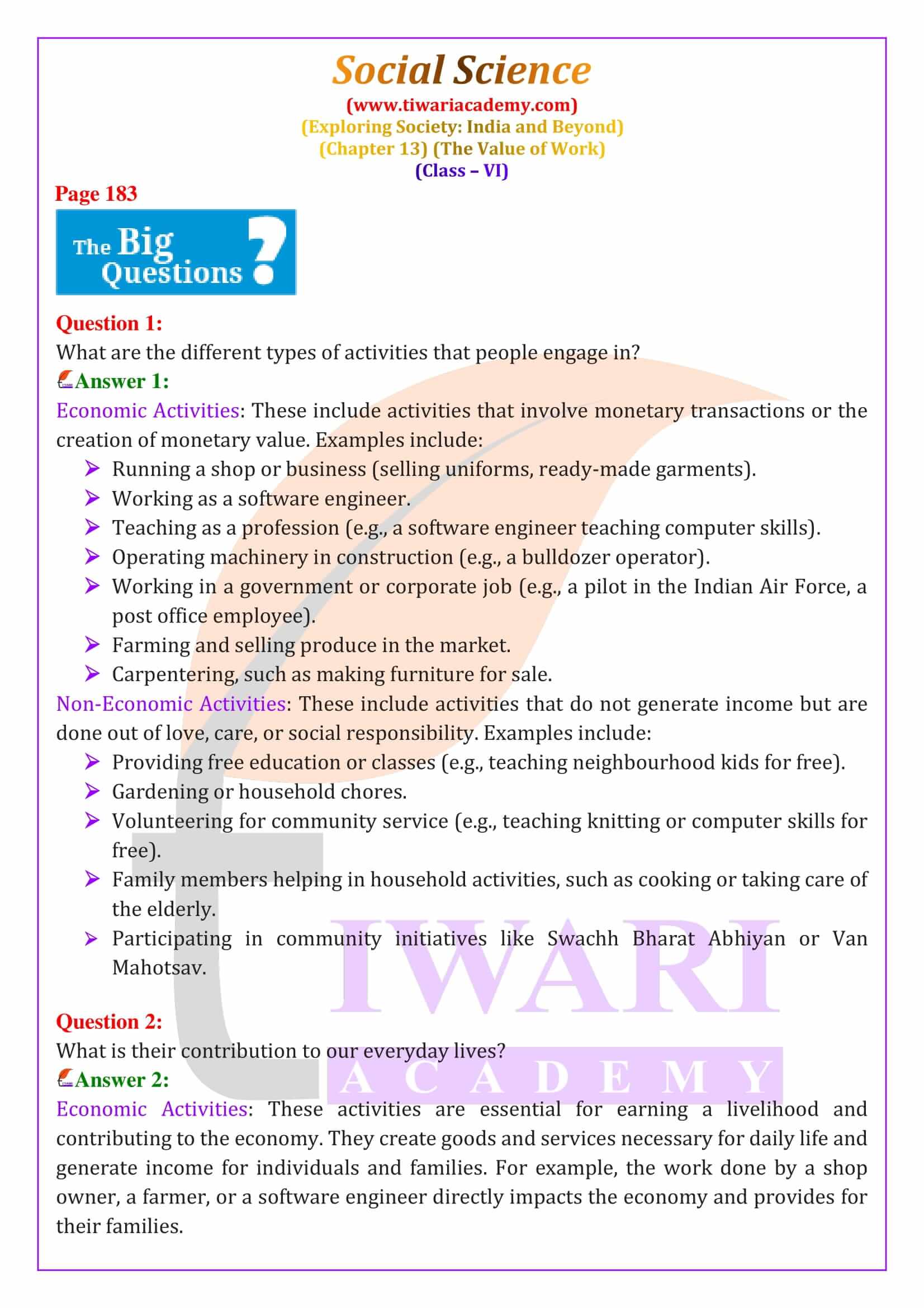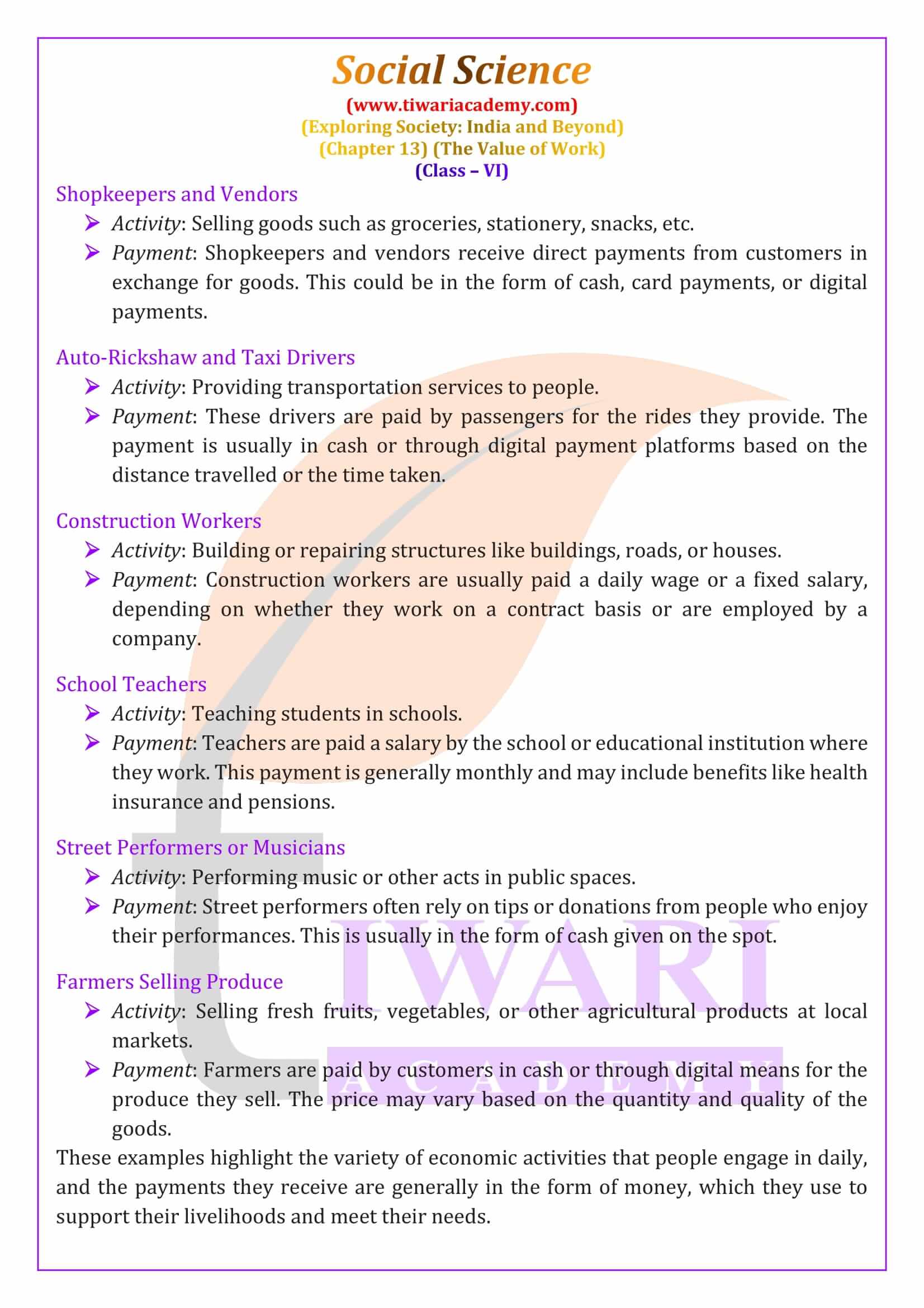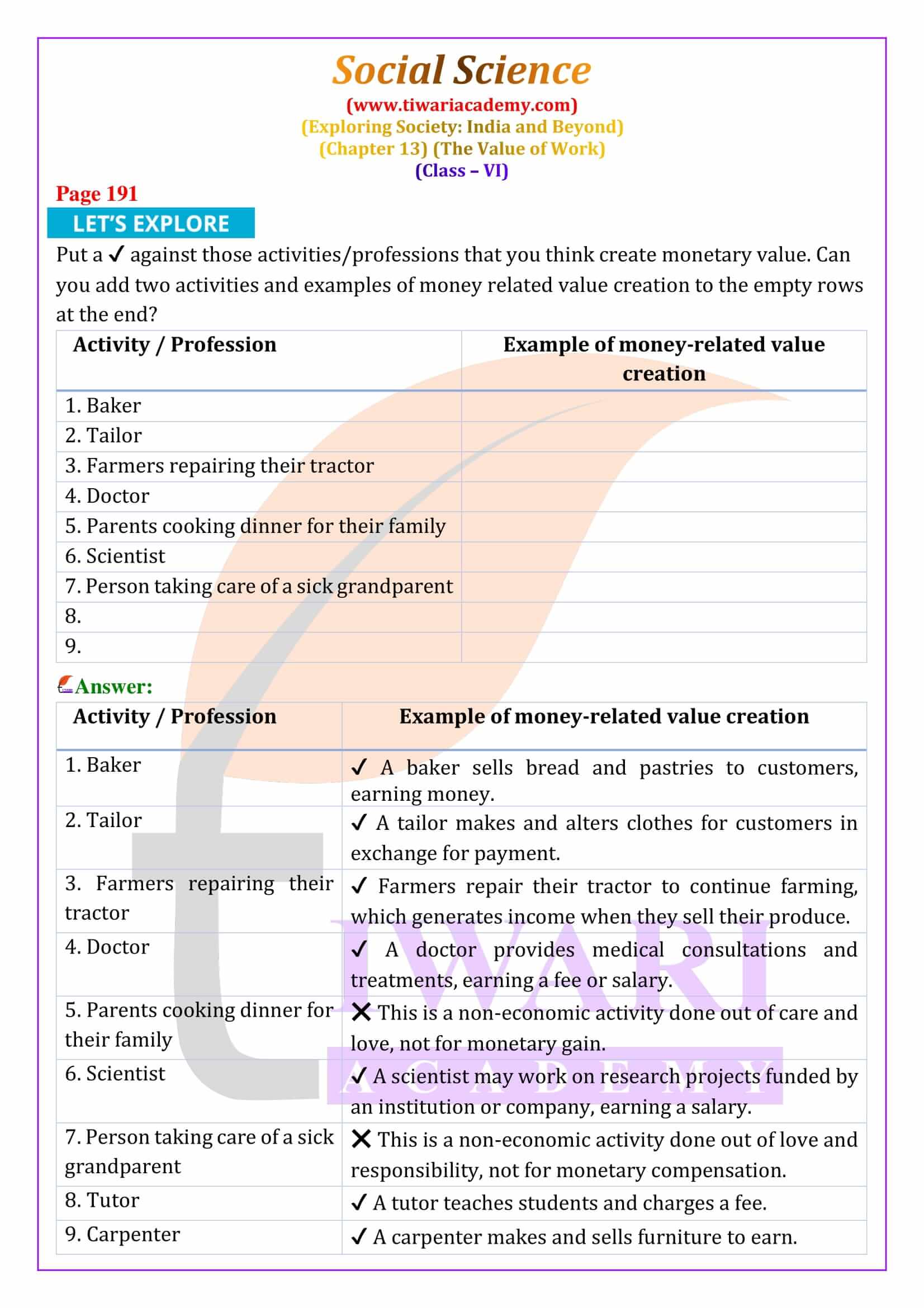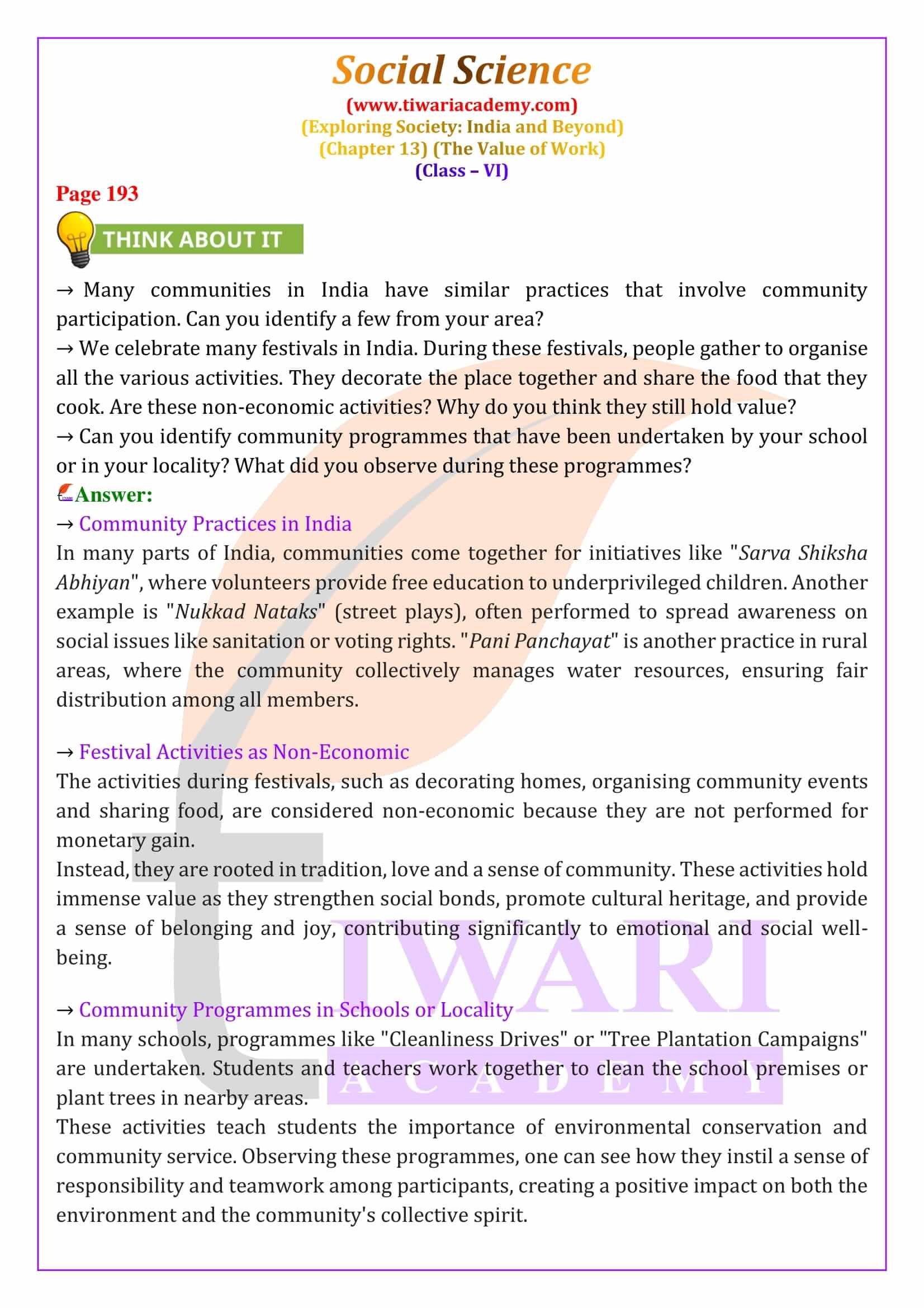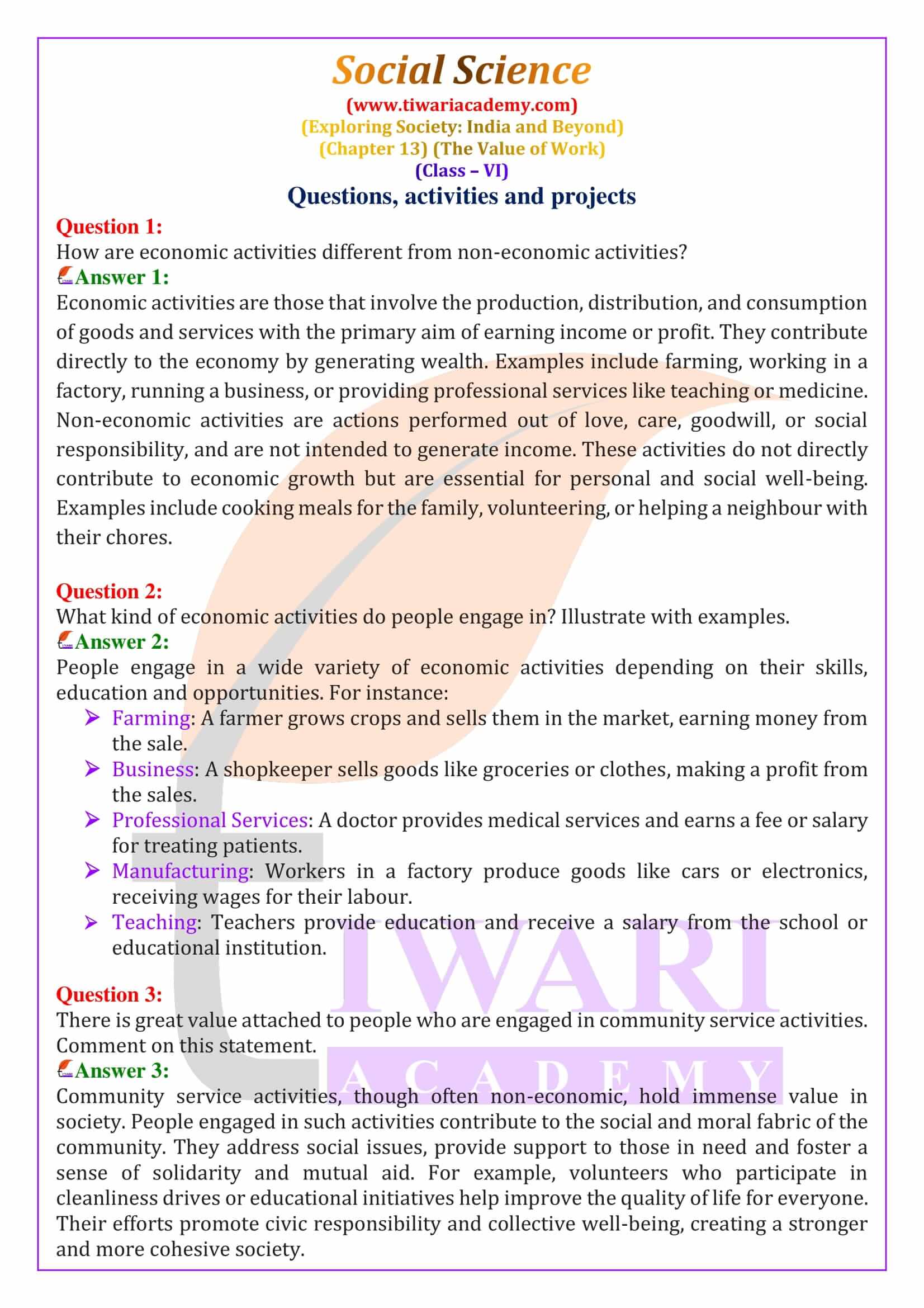NCERT Solutions for Class 6 Social Science Chapter 13 The Value of Work updated for academic session 2025-26. The question answers of Class 6 Social Science Chapter 13 Exploring Society – India and Beyond India Beyond Economics Section are given here for new Education Policy with complete solution of exercises.
Class 6 Social Science Chapter 13 The Value of Work Question Answers
Introduction to Different Types of Work
In the chapter 13 of 6th Social Science, we explore the different kinds of work that people engage in and understand their importance in our daily lives. The story begins with Anu and Kabir noticing how everyone around them, including their families and neighbors, is busy with various activities. These activities are not just about earning money but also include tasks done out of love and care. For example, Kabir’s grandfather teaches neighborhood kids for free, while Anu’s parents manage a shop and also engage in community activities. This chapter helps us see how work can be both for earning and for the well-being of others.
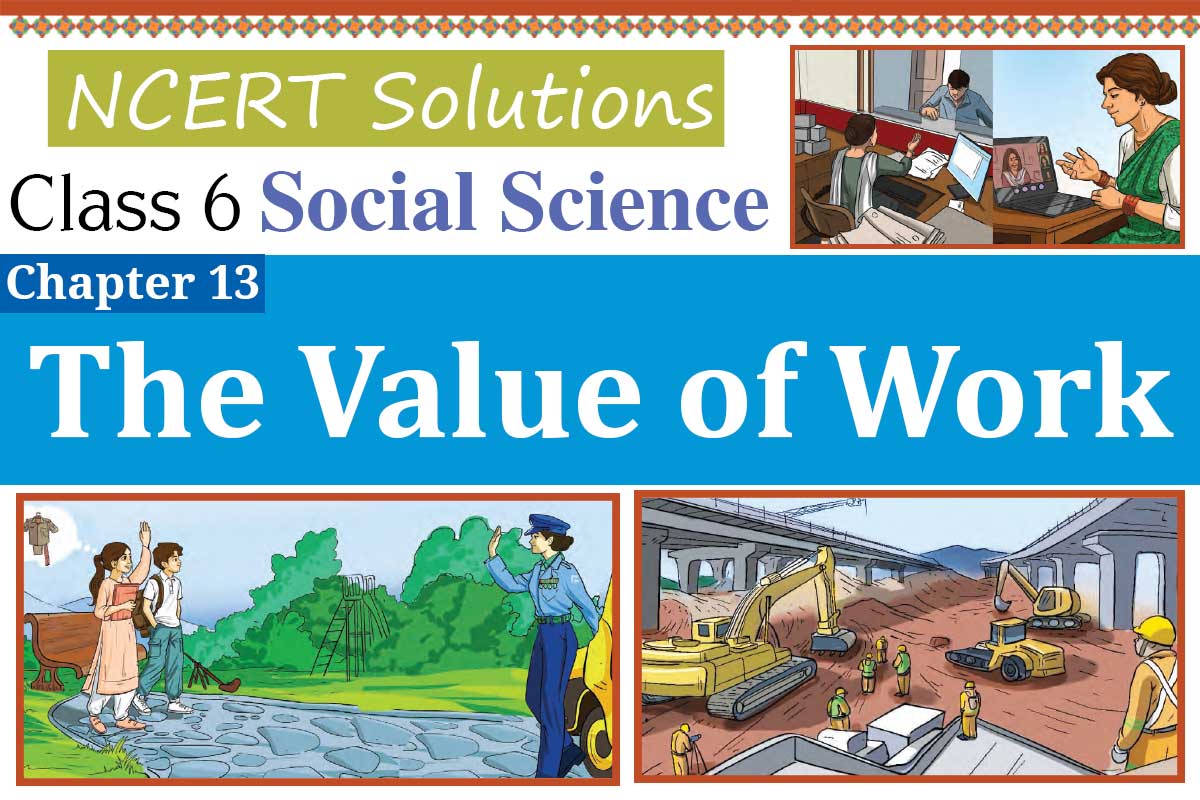
Understanding Economic Activities
Economic activities are tasks that people do to earn money or other forms of payment. These activities are important because they help people buy what they need to live. For example, selling goods in a market, working in a factory, or driving a truck to transport goods are all economic activities. People get paid for these tasks, either with money or sometimes with goods, which they can use to meet their needs. These activities contribute to the economy by providing services or producing goods that others can use.
Non-Economic Activities and Their Value
Non-economic activities, on the other hand, do not involve earning money. Instead, they are done out of love, care, or a sense of duty. For instance, parents cooking meals for their family or someone helping their grandparents are examples of non-economic activities. Although these activities do not generate income, they are very important for the happiness and well-being of families and communities. They help build strong relationships and create a sense of belonging among people.
The Role of Economic Activities in Society
Economic activities are essential for the functioning of society. They help people earn a living and provide for their families. For example, Kavya’s uncle, who operates a bulldozer, earns a salary that he uses to support his family. Kavya’s aunt, who works at a post office and also teaches students, contributes to the family’s income. These activities not only help the individuals who perform them but also benefit society by providing services and goods that others need.
The Importance of Non-Economic Activities
While economic activities are important, non-economic activities also play a crucial role in our lives. They create a sense of community and help people feel connected to each other. For instance, participating in a community clean-up drive or helping organize a festival are activities that do not earn money but are very valuable. These activities bring people together, create a sense of pride in the community, and make our surroundings better for everyone.
Value Addition in Economic Activities
Value addition refers to the process of increasing the value of a product or service through effort and skill. For example, Rajesh, a carpenter, buys wood for ₹600 and makes a chair that he sells for ₹1,000. The extra ₹400 represents the value of Rajesh’s skill and the time he spent making the chair. This concept of value addition is important because it shows how people’s work can transform raw materials into valuable products that others are willing to pay for.
The Balance Between Economic and Non-Economic Activities
Both economic and non-economic activities are essential for a balanced and happy life. Economic activities help us earn money and meet our material needs, while non-economic activities contribute to our emotional well-being and strengthen our relationships with others. By understanding the value of both types of work, we can appreciate the diverse ways in which people contribute to society and the importance of balancing these activities in our daily lives.

